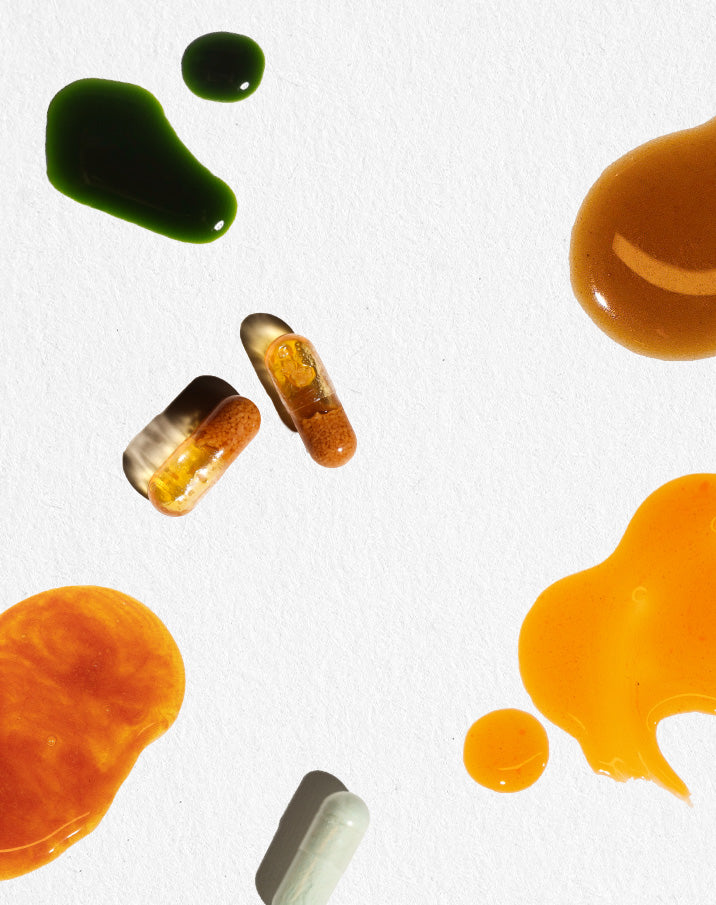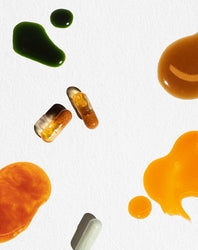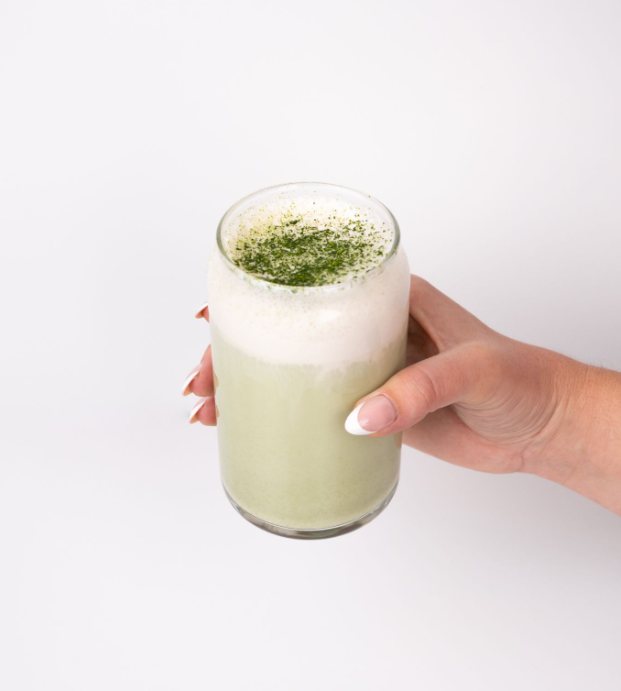
Creatine can provide your body with the natural energy it needs to increase athletic performance, support brain health, and promote healthy skin.
Vegan athletes can add creatine to their diets by integrating creatine supplements into their daily routines. However, before you begin supplementing with creatine, it’s important to be informed about what it is and how it works. Many creatine myths and misinformation exist across different online platforms, creating confusion about its potential benefits and side effects.
This article will investigate the numerous creatine facts and myths to help you understand the basics of this popular nutritional supplement.
What Is Creatine?
Creatine is an essential amino acid that helps store energy in your body’s muscles. Creatine plays an active role in the production of adenosine triphosphate (ATP), a molecule that can store large amounts of energy in the cells of your body.
Essentially, during high-intensity exercise, the cells of your body cash in ATP to produce energy for your muscles. ATP supplies your muscles with the power they need to contract, which is the key to completing any type of exercise, whether it be swimming, weight lifting, or sprinting.
Think of the movement of your body as you run. Each stride requires the shortening, lengthening, and tightening of your leg muscles. Creatine supplies the body with the energy it needs to carry out these actions and perform at its athletic best.
Is Creatine Worth The Hype?
While some evidence suggests that creatine may improve muscle mass and strength, boost brain performance, and reduce the signs of aging, other claims about this supplement may be unfounded or exaggerated.
Creatine has been falsely linked to harmful side effects like insomnia, weight gain, and organ dysfunction. Exaggerated benefits for creatine can also be found.
Fortunately, we’re here to debunk common myths surrounding this supplement and provide some clarity on creatine’s potential benefits.
Myth #1: Creatine Can Affect You Sexually
Does creatine affect sexually related hormones?
Claims have been made that creatine can affect testosterone levels. As men age, their testosterone levels can gradually begin to decrease. As testosterone in the body declines, they may experience:1
- Weight gain
- Fatigue
- Cognitive issues
- Loss of lean muscle mass
- Low sex drive
- Erectile dysfunction
Many men look to creatine as the solution to these problems, in addition to others: Creatine has also been thought to improve erectile function and libido.
While creatine can enhance athletic performance, no evidence has shown that this supplement does anything to improve sexual performance. If you are looking to increase your testosterone levels, creatine may not be the answer you’re looking for.
Myth #2: Creatine May Stunt Growth
Does creatine stunt growth? Some have made alarming claims that creatine can inhibit certain growth-inducing proteins and hormones in the body, which can stunt height in adolescents.
However, a study in Belgium found no link between stunted growth and creatine consumption.2
In fact, research has found the opposite: Many suggest that creatine's ability to build and repair muscles can actually support growth. In a study of children and adolescents aged 2-19, evidence suggests that a higher daily creatine intake may be linked to taller heights in children.3
It should be pointed out that stunted growth is most often the result of nutritional deficiency or malnutrition.4 As such, children with higher creatine levels are likely to be consuming more high-calorie and nutrient-dense foods, which may account for this growth factor, not the creatine itself.
It’s also important to note that if you are younger than 18, you should always consult a doctor or licensed professional before adding creatine or any pre-workout supplement to your diet.
Myth #3: Creatine Can Keep You Awake
Does creatine keep you awake? Many warn against taking creatine before bed, as it may keep you tossing and turning all night.
Claims that creatine can disrupt your sleep are founded on the idea that creatine gives you energy. While this is somewhat true, we must remember what type of energy creatine generates—ATP.
ATP is fuel for your muscles and your brain, but it’s not the same type of energy that you get from, say, caffeine, which can block sleep receptors in the brain and can keep you up throughout the night.5
Rest assured that you can take this supplement at any time of the day—or night—and it will not affect the quality or quantity of your sleep.
Myth #4: Creatine Can Cause Damage to Kidneys and Liver
Does creatine cause damage to your kidneys and liver? If you are a generally healthy individual, no.
Although anecdotal evidence suggests that creatine can play a role in kidney or liver issues, these individual incidents are not sufficient enough to prove a link between creatine supplementation and organ dysfunction.
A long-term study of 26 athletes suggests that long-term creatine supplementation does not result in any adverse health impacts, including any observable effects on the kidneys or liver.6
However, if you have preexisting kidney or liver conditions, you should proceed with caution. It’s important to consult with a healthcare professional to decide if creatine is the right supplement for you.
Myth #5: Creatine May Cause Weight Gain
Does creatine make you gain weight? People may notice their scale goes up after they begin taking creatine. While this may be shocking, it's not often an indication that you’re gaining fat.
Creatine has the ability to pull water into your muscles. This can prompt fluid retention, causing your arms, legs, or abdomen to appear bloated or swollen.7 This water weight can actually help your muscles grow and become stronger.
Another possible reason you see those numbers rise is due to an increase in muscle mass, which may be a likely benefit of creatine supplementation.
Myth #6: Creatine Can Cause Hair Loss
Does creatine cause hair loss? There is an assumption that creatine increases the hormone that causes hair loss; however, there is no evidence to suggest this.
While the myth that creatine causes hair loss has circled gym-going and athletic communities for quite some time, there is no data to prove that creatine plays any role in this ailment.
Hair loss in men is typically caused by genetic or hormonal changes. Although creatine has not been shown to impact either of these factors, please consult a healthcare professional to assess if creatine is the right dietary supplement for you if you are concerned about hair loss.
Myth #7: Creatine is Only for Athletes
Is creatine supplement only for athletes? Absolutely not.
While this dietary supplement is popular amongst athletes that compete in high-intensity sports, the many benefits of creatine supplements can be advantageous to anyone—no matter their activity level.
Creatine can support any active person on their personal health journey, whether they’re aiming to run a mile or run a marathon.
All that said, creatine’s energy-boosting properties provide a wide range of benefits for anyone seeking to supplement their diets.
Potential Benefits of Creatine
We’ve spent some time talking about the myths surrounding creatine. Now let's discuss its potential benefits. Unlike our common myths surrounding creatine, which are based upon hearsay or anecdotes, these benefits are supported by studies and evidence that suggest that creatine may support full-body health.
#1 May Support Muscle Function
Creatine supplements can support muscle function and add muscle mass. After taking creatine, the size of your muscles may increase due to water retention and provide your muscles with the energy they need to grow.
#2 Can Improve Athletic Performance
Studies suggest that creatine can boost exercise performance amongst individuals who participate in high-intensity workouts like running, climbing, or lifting. Creatine may also improve:8
- Muscle mass
- Muscle strength
- Endurance
- Speed
- Recovery
#3 May Enhance Cognitive Function
Creatine monohydrate may enhance brain function and cognitive functioning. Creatine’s ability to create energy doesn’t just stay with muscles but also expands to the brain. Studies have suggested that creatine may help improve:9
- Cognition
- Communication
- Brain injuries
- Neurological disorders
- Mood
- Behavior
#4 Can Support Healthy Skin
If applied to the skin, creatine may reduce signs of aging.10 Creatine can help stimulate cell turnover on your face. This reveals new, bright skin and can lessen the appearance of fine lines and wrinkles, reduce the appearance of dark spots, and help improve your complexion.
Bust Those Myths With Cymbiotika
Creatine is an essential supplement that can provide you with long-lasting benefits. Its ability to assist in muscle growth, improve brain function, and enhance skin health makes it a popular product amongst athletes and other individuals looking to boost their performance.
You can trust Cymbiotika to deliver high-quality creatine supplements. At Cymbiotika, our products are sourced from organic, wild-crafted, and non-GMO ingredients. And we’re committed to bringing you reliable and effective supplements to support you on your wellness journey and help you achieve your health goals.
Creatine+ is a highly bioavailable and easily digestible form of creatine that can help support your brain, muscles, and skin. And it pairs with our Vitamin B12+B6 for added benefits like stamina, mood boost, and heart health.
Meet your health goals with Cymbiotka.
Sources:
- Journal of Andrology. Aging and Declining Testosterone: Past, Present, and Hopes for the Future. https://www.ncbi.nlm.nih.gov/pmc/articles/PMC4077344/
- Journal of Sports Medicine and Physical Fitness. Acute creatine loading enhances human growth hormone secretion.https://pubmed.ncbi.nlm.nih.gov/11297004/
- Nutrients. Relationship between Dietary Creatine and Growth Indicators in Children and Adolescents Aged 2019 Years: A Cross-Sectional Study.https://pubmed.ncbi.nlm.nih.gov/33806719/
- World Health Organization. Stunting in a nutshell.https://www.who.int/news/item/19-11-2015-stunting-in-a-nutshell
- American Academy of Sleep Medicine. Sleep and Caffeine.https://sleepeducation.org/sleep-caffeine/
- Medicine & Science in Sports & Exercise. Creatine Supplementation and Health Variables: A Retrospective Study. https://pubmed.ncbi.nlm.nih.gov/11224803/
- Healthline. Does Creatine Cause Bloating? Everything You Need to Know.https://www.healthline.com/nutrition/creatine-bloating
- Medicine & Science in Sports & Exercise. Effects of oral creatine supplementation on muscular strength and body composition.https://pubmed.ncbi.nlm.nih.gov/10731009/
- Nutrients. Creatine Supplementation and Brain Health.https://www.ncbi.nlm.nih.gov/pmc/articles/PMC7916590/
- Journal of Cosmetology and Dermatology. Dermal penetration of creatine from a face-care formulation containing creative, guarana and glycerol is linked to effective antiwrinkle and antisagging efficacy in male subjects.https://pubmed.ncbi.nlm.nih.gov/22151935/







